The systems of possesives in "Amadís de Gaula": a reflection of a linguistic change
DOI:
https://doi.org/10.54166/rhle.2021.16.02Keywords:
Possessives, Amadís de Gaula, Linguistic change, Variation, Article, Preposition, Postposition, Order of components of the nominal phraseAbstract
In this paper I propose to observe an ongoing linguistic change, analyzing the similarities and differences between the systems of possessives in the first and fourth books of Amadís de Gaula. I will focus on the frequencies of use of different structures, then I will consider to what extent the variants are controlled in both books. Throughout my article, I will try to evaluate the weight of Rodríguez de Montalvo’s influence on the system of possessives in the first book, comparing it to other 14th century texts. I will also examine the influence of the idiolect of the primitive Amadís and of the Discursive Traditions of the chivalry novels in the system of possessives in the fourth book. Thus, my objective is to provide elements that allow a better understanding, on the one hand, of the extent to which the articulated possessives of the first book are vestiges of the 14th century version or intentional archaisms from Rodríguez de Montalvo and, on the other hand, of the extent to which he transforms his own idiolect to imitate the language of the primitive Amadís and/or other works of the chivalric tradition.
Downloads
References
CORPUS
Amadís I: Rodríguez de Montalvo, Garci (1987): Amadís de Gaula, I. J. M. Cacho Blecua (ed.). Madrid: Cátedra.
Amadís IV: Rodríguez de Montalvo, Garci (1987): Amadís de Gaula, IV. J. M. Cacho Blecua (ed.). Madrid: Cátedra.
Alemán, Mateo (2015): Guzmán de Alfarache. Barcelona: Castalia.
Anónimo (1787): Crónica de D. Alfonso el onceno de este nombre, de los reyes que reynaron en Castilla y en Leon. Madrid: Imprenta de D. A. de Sancha.
D. Juan Manuel (2007): Obras completas: Crónica abreviada. Madrid: Fundación José Antonio de Castro.
Díaz de Games, Gutierre (1993): El Victorial. Madrid: Cátedra.
Leomarte (1932): Sumas de historia troyana. Madrid: S. Aguirre.
Martínez de Toledo, Alfonso (1992): Arcipreste de Talavera o Corbacho. Madrid: Castalia.
San Pedro, Diego de (1993): Cárcel de amor. Madrid: Castalia.
Santa Teresa de Jesús (1979): Libro de la vida. Madrid: Cátedra.
REFERENCIAS BIBLIOGRÁFICAS
Avalle-Arce, Juan Bautista (1990): Amadís de Gaula: el primitivo y el de Montalvo. México: Fondo de Cultura Económica.
Barra Jover, Mario (2015): “Método y teoría del cambio lingüístico: argumentos en favor de un “método idiolectal””. En J. M. García Martín (ed.): Actas del IX Congreso Internacional de Historia de la Lengua Española (Cádiz, 2012), I. Madrid: Iberoamericana-Vervuert Verlagsgesellschaft, 263-292. DOI: https://doi.org/10.31819/9783964566492-013
Cacho Blecua, Juan Manuel (ed.) (1987): Amadís de Gaula. Madrid: Cátedra.
Company Company, Concepción (1991): La Frase sustantiva en el español medieval: cuatro cambios sintácticos. México: Universidad Nacional Autónoma de México.
Company Company, Concepción (2001): “Gramaticalización, debilitamiento semántico y reanálisis: El posesivo como artículo en la evolución sintáctica del español”. Revista de Filología Española 81/1: 49-87. https://doi.org/10.3989/rfe.2001.v81.i1/2.170 DOI: https://doi.org/10.3989/rfe.2001.v81.i1/2.170
Company Company, Concepción (2009): “Artículo + posesivo + sustantivo y estructuras afines”. En C. Company Company (dir.): Sintaxis histórica de la lengua española. Segunda parte. La frase nominal, II. México: Fondo de Cultura Económica / Universidad Nacional Autónoma de México, 759-880.
Company Company, Concepción (2017): “El posesivo átono con artículo definido y con artículo indefinido. Similitudes y diferencias”. En La posesión en español. Madrid: Consejo Superior de Investigaciones Científicas, 133-175.
Domingo del Campo, Francisca (1982): El lenguaje del “Amadís de Gaula”. Tesis doctoral. Madrid: Universidad Complutense de Madrid.
Eberenz, Rolf (2000): El Español en el otoño de la Edad Media: sobre el artículo y los pronombres. Madrid: Gredos.
Fernández Martín, Elisabeth (2012): La oposición vosotros/ustedes en la historia del español peninsular (1700-1931). Tesis doctoral: Universidad de Granada.
Gómez Seibane, Sara (2010): “De nuevo sobre artículo + posesivo + sustantivo: textos vizcaínos de los siglos XV-XVIII”. Nueva Revista de Filología Hispánica 58/1, 241-256. https://doi.org/10.24201/nrfh.v58i1.2454 DOI: https://doi.org/10.24201/nrfh.v58i1.2454
Keniston, Hayward (1937): The Syntax of Castilian Prose: The sixteenth century. Chicago: University of Chicago.
Koch, Peter (2008): “Tradiciones discursivas y cambio lingüístico: el ejemplo del tratamiento “vuestra merced” en español”. En J. Kabatek (ed.): Sintaxis histórica del español y cambio lingüístico. Nuevas perspectivas desde las Tradiciones Discursivas. Madrid / Frankfurt am Main: Iberoamericana / Vervuert, 53-88. DOI: https://doi.org/10.31819/9783865278623-003
Labrousse, Mallorie (2018): Étude diachronique et comparée de l’alternance [article + possessif + nom] - [possessif + nom] en catalan, espagnol et portugais, du 13e au 20e siècle. Tesis doctoral. Université Paris 8.
Lapesa, Rafael (1971): “Sobre el artículo con posesivo en castellano antiguo”. En Estudios de morfosintaxis histórica del español, ed. de R. Cano Aguilar & M. T. Echenique Elizondo. Madrid: Gredos, 2000, vol. I, 413-435.
Ly, Nadine (1978): “La syntaxe du possessif dans l’épisode Melón-Endrina du “Libro de Buen Amor””. Cahiers de linguistique hispanique médiévale 3/1, 5-31. https://doi.org/10.3406/cehm.1978.978 DOI: https://doi.org/10.3406/cehm.1978.978
Olmo, Francisco Javier Calvo del (2011): “Sobre la gramaticalización de los tratamientos nominales en las lenguas románicas: paralelismos e influencias”. Caligrama: Revista de Estudos Românicos 16/2, 131-153. http://dx.doi.org/10.17851/2238-3824.16.2.131-153 DOI: https://doi.org/10.17851/2238-3824.16.2.131-153
Place, Edwin B. (ed.) (1959): Amadís de Gaula. Madrid: Consejo Superior de Investigaciones Científicas / Instituto Cervantes.
Rodríguez Velasco, Jesús (ed.) (1997): Amadís de Gaula. Madrid: Fundación José Antonio de Castro.
Rosemeyer, Malte & Andrés Enrique-Arias (2016): “A match made in heaven: Using parallel corpora and multinomial logistic regression to analyze the expression of possession in Old Spanish”. Language Variation and Change 28/3, 307-334. https://doi.org/10.1017/S0954394516000120 DOI: https://doi.org/10.1017/S0954394516000120

















